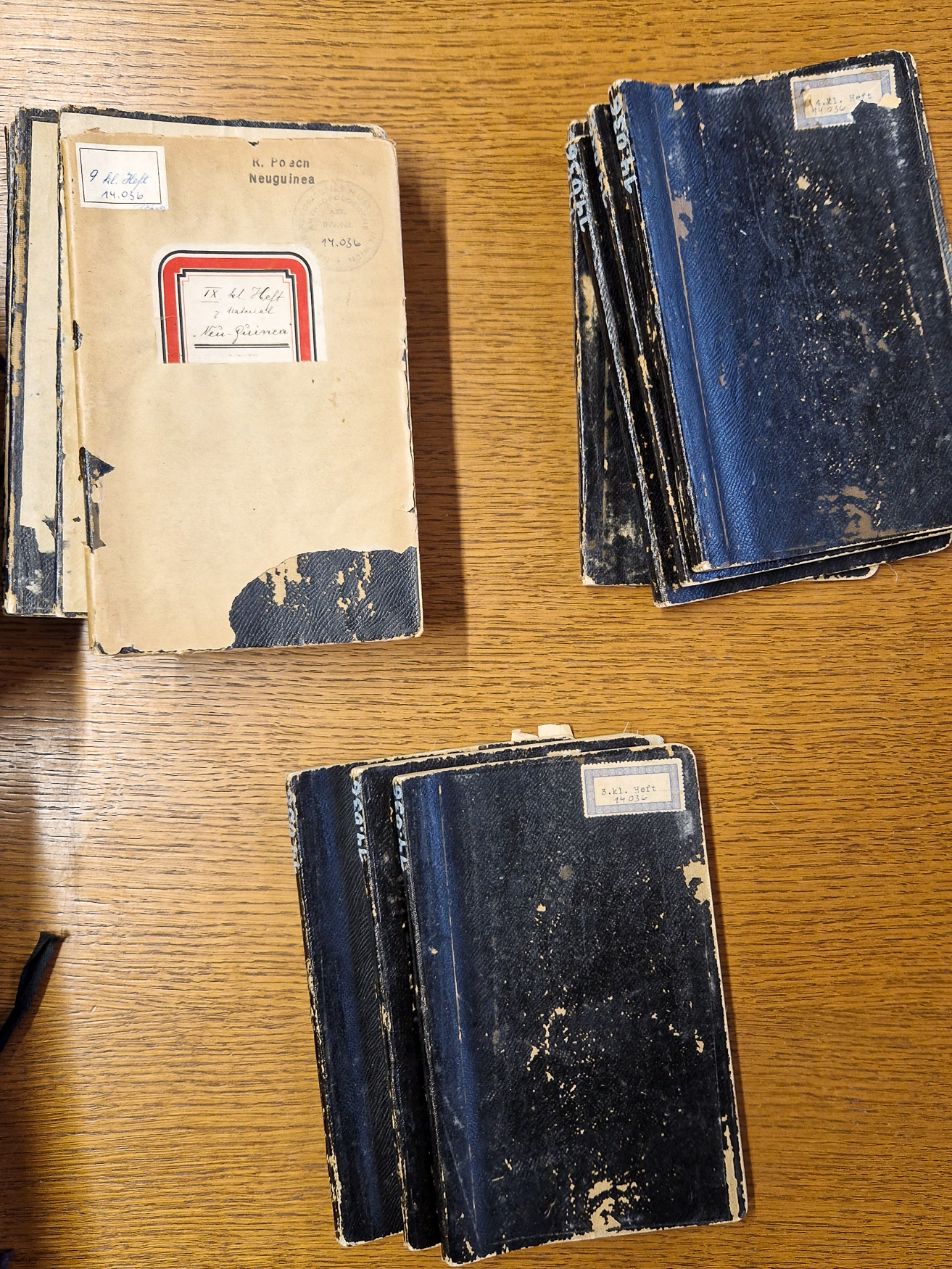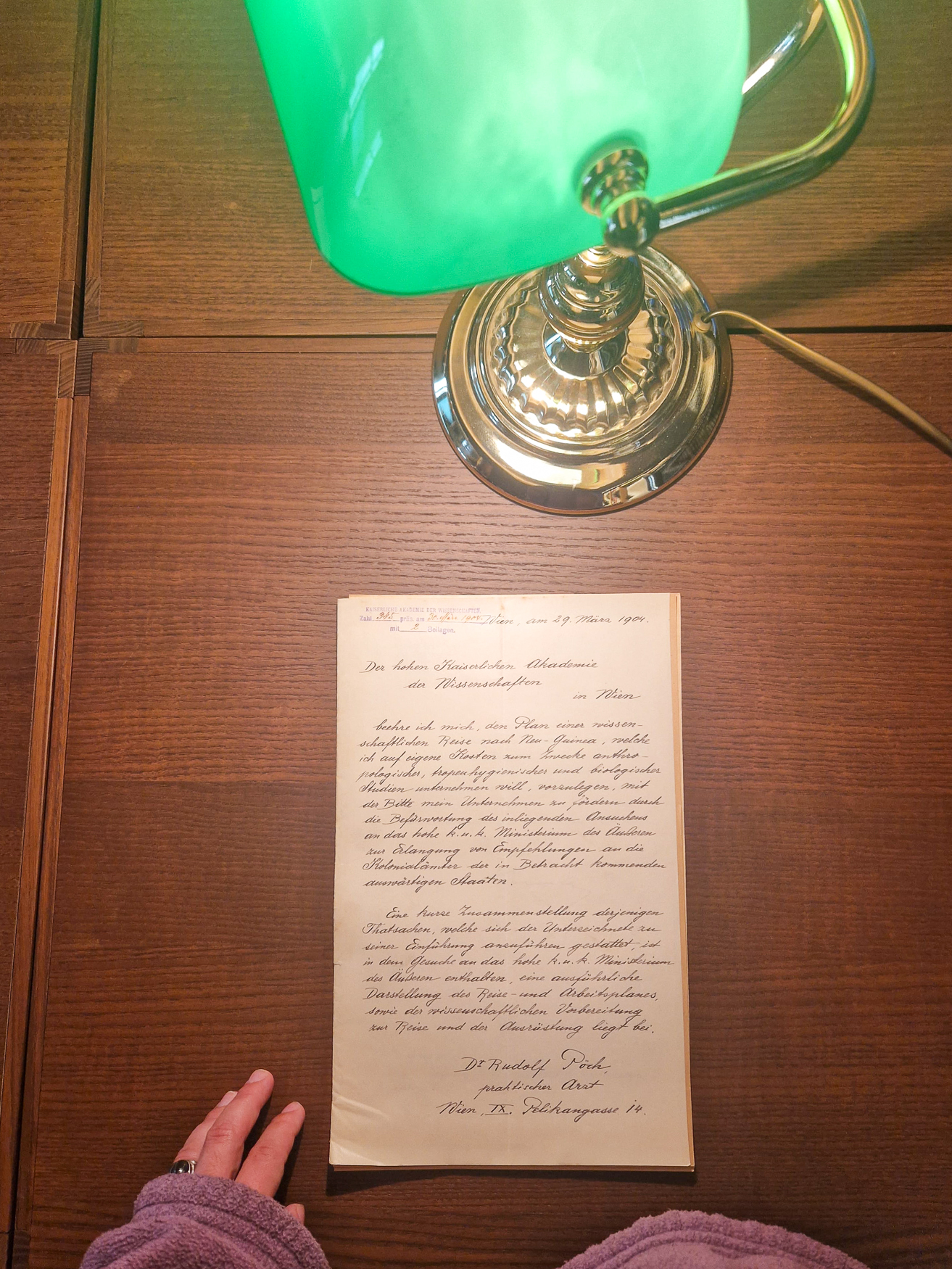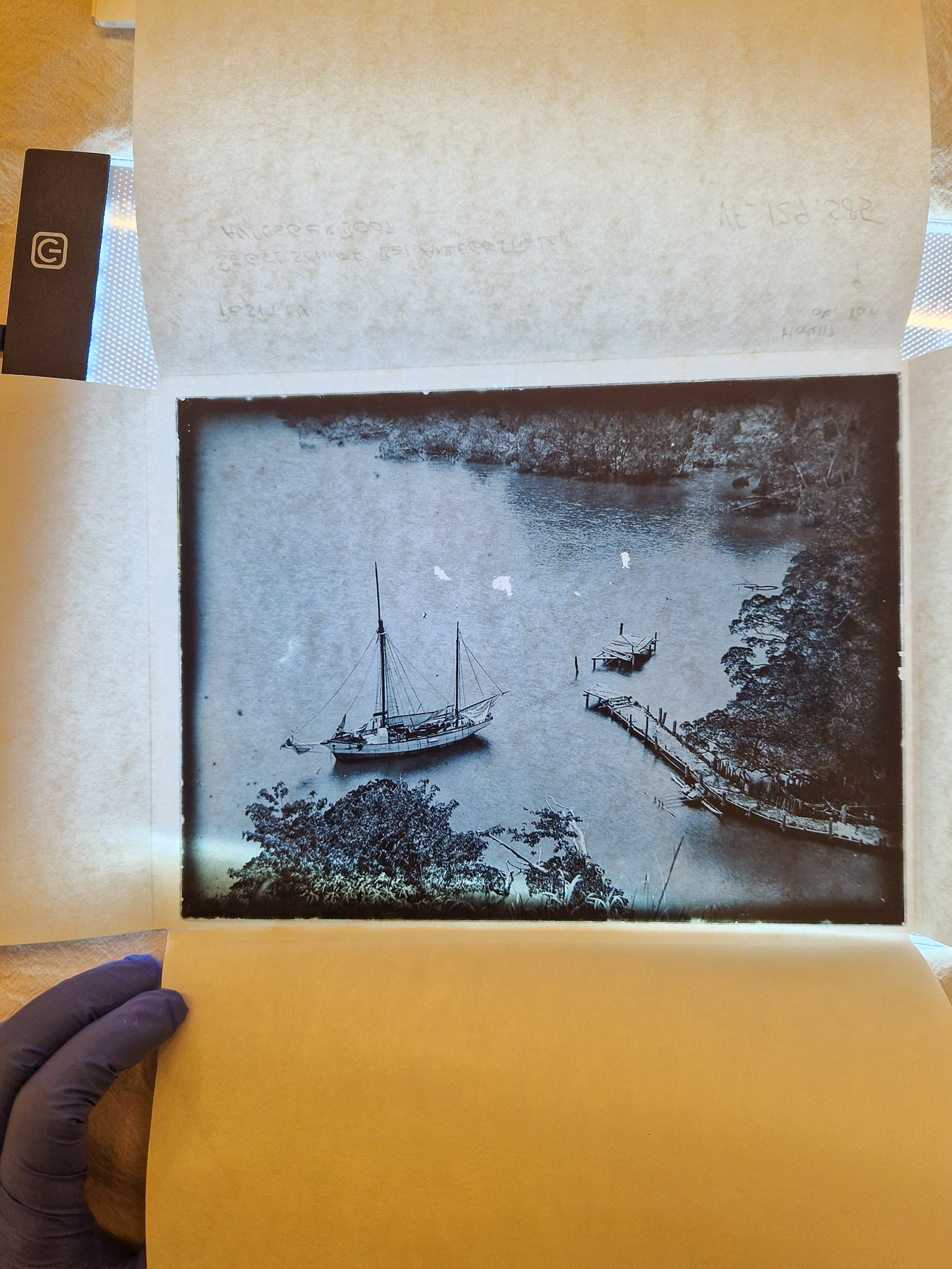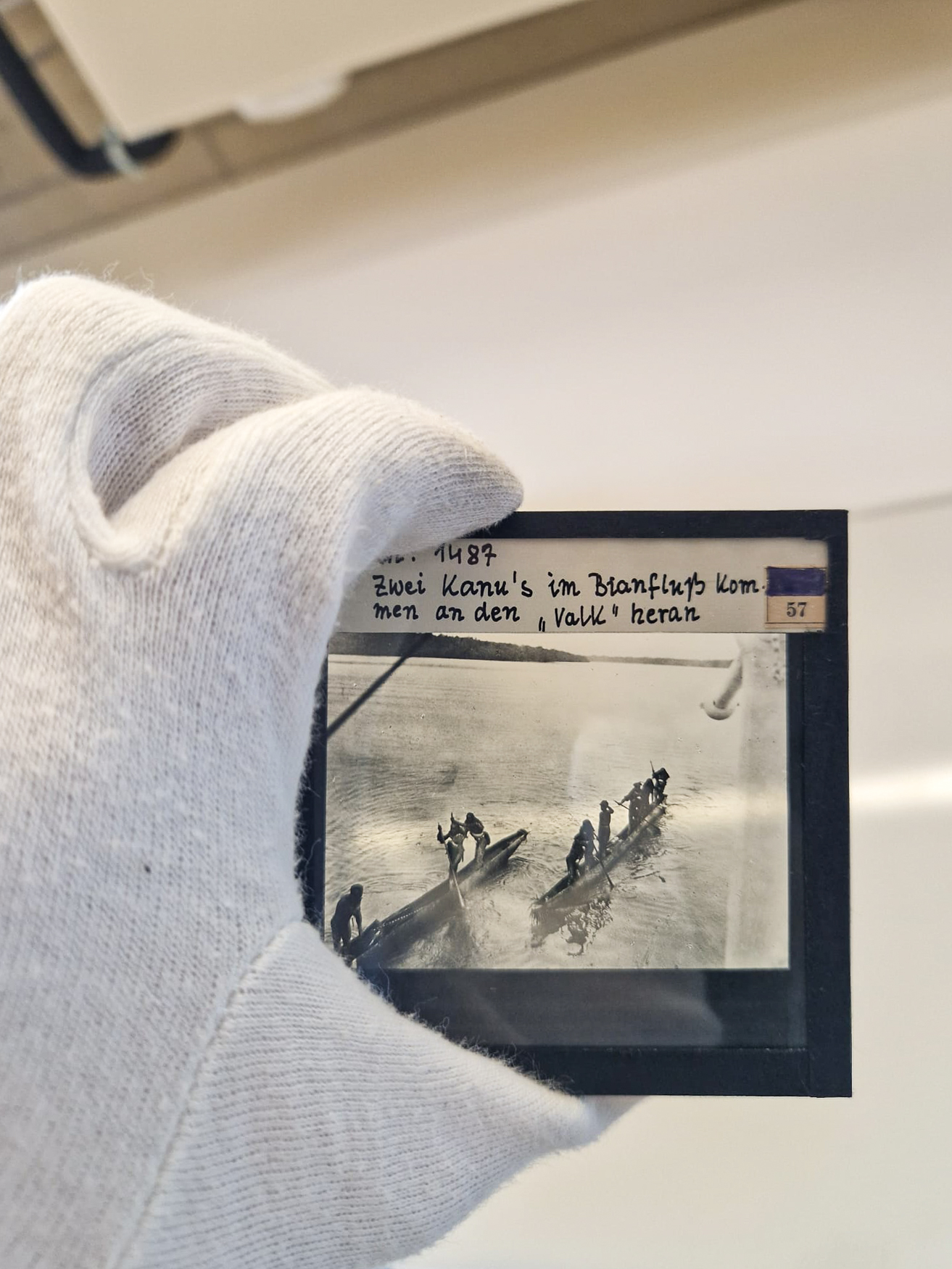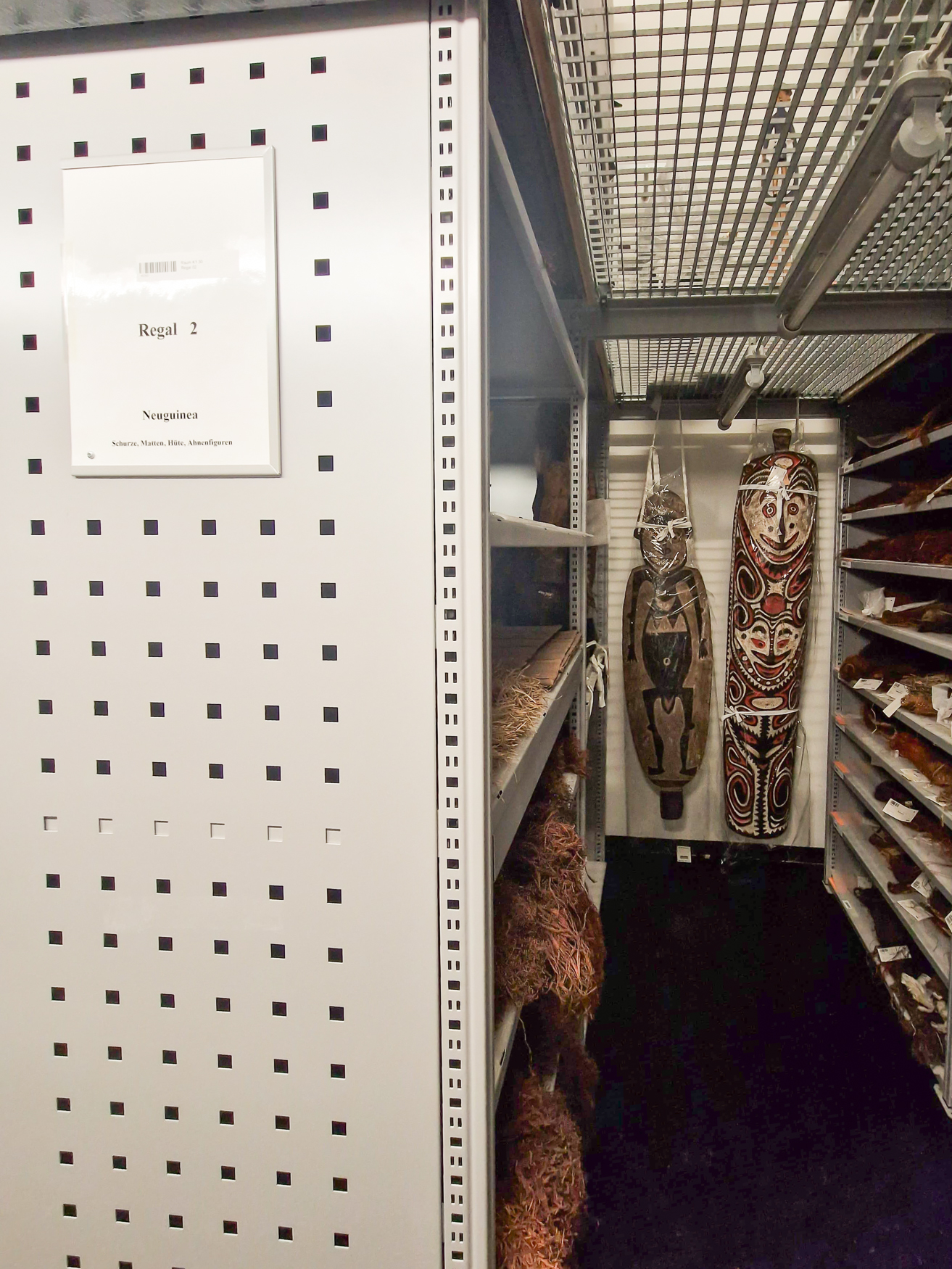The Entangled Colonial History of Sound Recordings
The beginning of a process
Many of the phonographic recordings of the Phonogrammarchiv, such as Rudolf Pöch’s Papua New Guinea recordings (1904–1906), form part of its colonial legacy. Other sources connected to these holdings are dispersed within Austria and around the world.
Unless one is able to find such sources internationally, it is impossible to access and reconstruct this history from multiple perspectives. With this project we intend to address this issue.
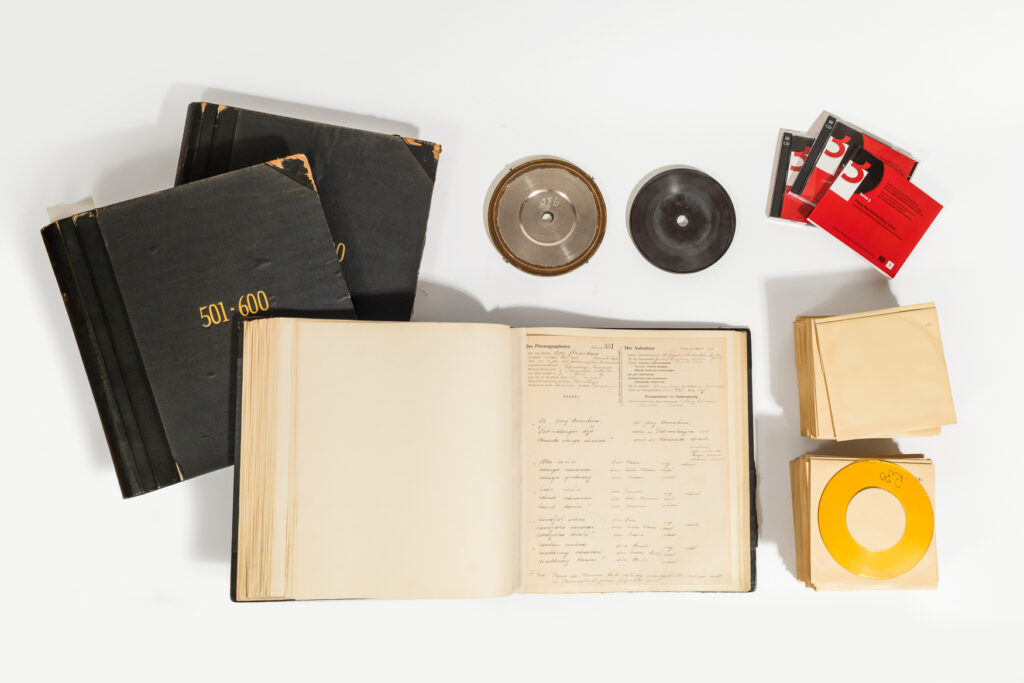
Findability
An list of institutions and sources connected to the expedition to Papua New Guinea
The goal of this website is to give a transparent overview of the institutions that hold the dispersed objects, audio recordings, photographs, film recordings, and paperwork, ‘collected’ and produced by Rudolf Pöch. They were made before, during, and after his colonial expedition to today’s Papua New Guinea (then known as British New Guinea, German New Guinea and Dutch New Guinea), Indonesia (Dutch East Indies), and Australia between 1904 and 1906.
With this project and website, we wish to highlight in an ethically informed way the sources and the historical implications they reveal, as well as the institutions that hold them, and the responsibility they have in dealing with them transparently. The annotated list is intended to aid findability and provide information on access, for future engagement with the materials, whether academic, artistic, or personal.
Beyond Pöch
Centering Austria’s and Vienna’s research institutions as part of an entangled colonial history
This project is an important step in a longer, continuous collaborative research process. Our intention is to go beyond Rudolf Pöch, to see his collections as the result of one of many comparable Austrian colonial research projects. We hope that scholars around the world will continue this research with us.

